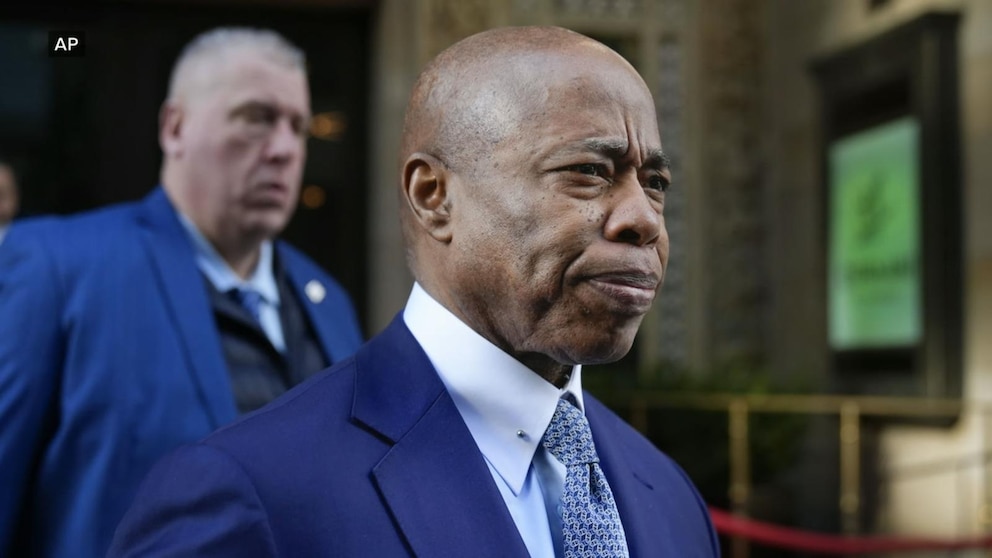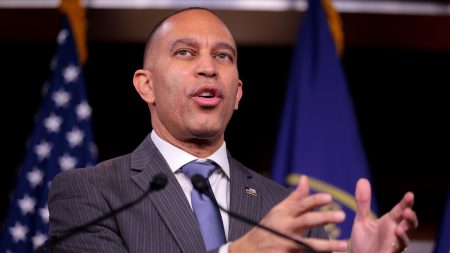DOJ Files Motion to Dismiss Charges Against NYC Mayor
In a surprising turn of events, the Department of Justice (DOJ) recently filed a motion to dismiss the charges against New York City Mayor Eric Adams. This decision came after seven prosecutors resigned in protest, citing concerns over the handling of the case. The resignation of such a large group of prosecutors is highly unusual and has raised eyebrows across the legal and political communities. Former federal prosecutor Neama Rahmani shed light on the situation, explaining that such a move by the DOJ is not taken lightly and often indicates significant issues with the case, such as insufficient evidence or procedural irregularities. The dismissal of charges against Mayor Adams has sparked debates about the integrity of the justice system and the role of prosecutorial discretion.
The Resignation of Prosecutors and Its Implications
The resignation of seven prosecutors in protest of the DOJ’s decision to drop the charges against Mayor Adams is a rare and significant occurrence. Prosecutors typically resign for reasons such as ethical disagreements or lack of confidence in the case. In this instance, their resignation suggests that they strongly believed in the merits of the case and were unhappy with the DOJ’s decision to dismiss it. Neama Rahmani emphasized that prosecutors are entrusted with immense power and responsibility, and their collective resignation underscores the gravity of the situation. This development has led to questions about whether political influence played a role in the DOJ’s decision, as Mayor Adams is a high-profile public figure. The public is now left wondering whether justice was served or if external factors swayed the outcome.
The Impact on Mayor Eric Adams and His Administration
The dismissal of charges against Mayor Eric Adams has been met with mixed reactions. Supporters of the mayor view the decision as a vindication of his integrity and a confirmation that the charges were unfounded. On the other hand, critics argue that the dismissal raises questions about accountability and the fairness of the justice system, particularly given the high-profile nature of the case. Mayor Adams has maintained his innocence throughout the ordeal, and his administration is likely to use the dismissal as a way to regain public trust and momentum. However, the resignation of the prosecutors and the circumstances surrounding the case may linger in the public consciousness, potentially affecting his political future.
The Role of Prosecutorial Discretion in the Case
Prosecutorial discretion, or the power of prosecutors to decide whether to pursue or dismiss charges, is a cornerstone of the U.S. justice system. The DOJ’s decision to dismiss the charges against Mayor Adams falls under this discretion. Neama Rahmani explained that while prosecutors have the authority to make such decisions, they are also expected to act in the best interest of justice and the public. The dismissal of charges in this case has led to scrutiny over how and why the decision was made. Was it based on a thorough review of the evidence, or were other factors at play? The public’s trust in the justice system hinges on transparency and accountability, and the DOJ will likely face calls to provide more information about the reasoning behind their decision.
Public Reaction and the Broader Implications
The public reaction to the DOJ’s decision has been intense, with many citizens expressing frustration and skepticism. Social media platforms have been flooded with comments questioning the fairness of the justice system and speculating about potential political interference. The case has also sparked debates about the treatment of public officials in legal proceedings and whether they are held to the same standards as ordinary citizens. Neama Rahmani noted that high-profile cases like this one often serve as a litmus test for public trust in the justice system. If the public perceives that justice is not being served equitably, it could have far-reaching consequences, including decreased faith in government institutions and increased civic unrest.
Looking Ahead: What’s Next for the Case and the City?
As the dust settles on the DOJ’s decision, many are left wondering what’s next for the case and for New York City. The dismissal of charges against Mayor Adams does not necessarily mark the end of the story, as the circumstances surrounding the prosecution and the resignation of the prosecutors may yet come under further scrutiny. The mayor and his administration will likely face continued questions about the case, and political opponents may use it as fodder in future elections. Meanwhile, the DOJ will need to address concerns about transparency and accountability to restore public trust. Neama Rahmani suggested that an independent review of the case could provide much-needed clarity and help to address lingering questions. Ultimately, the outcome of this situation will have significant implications for the justice system, political landscape, and public trust in government institutions.















